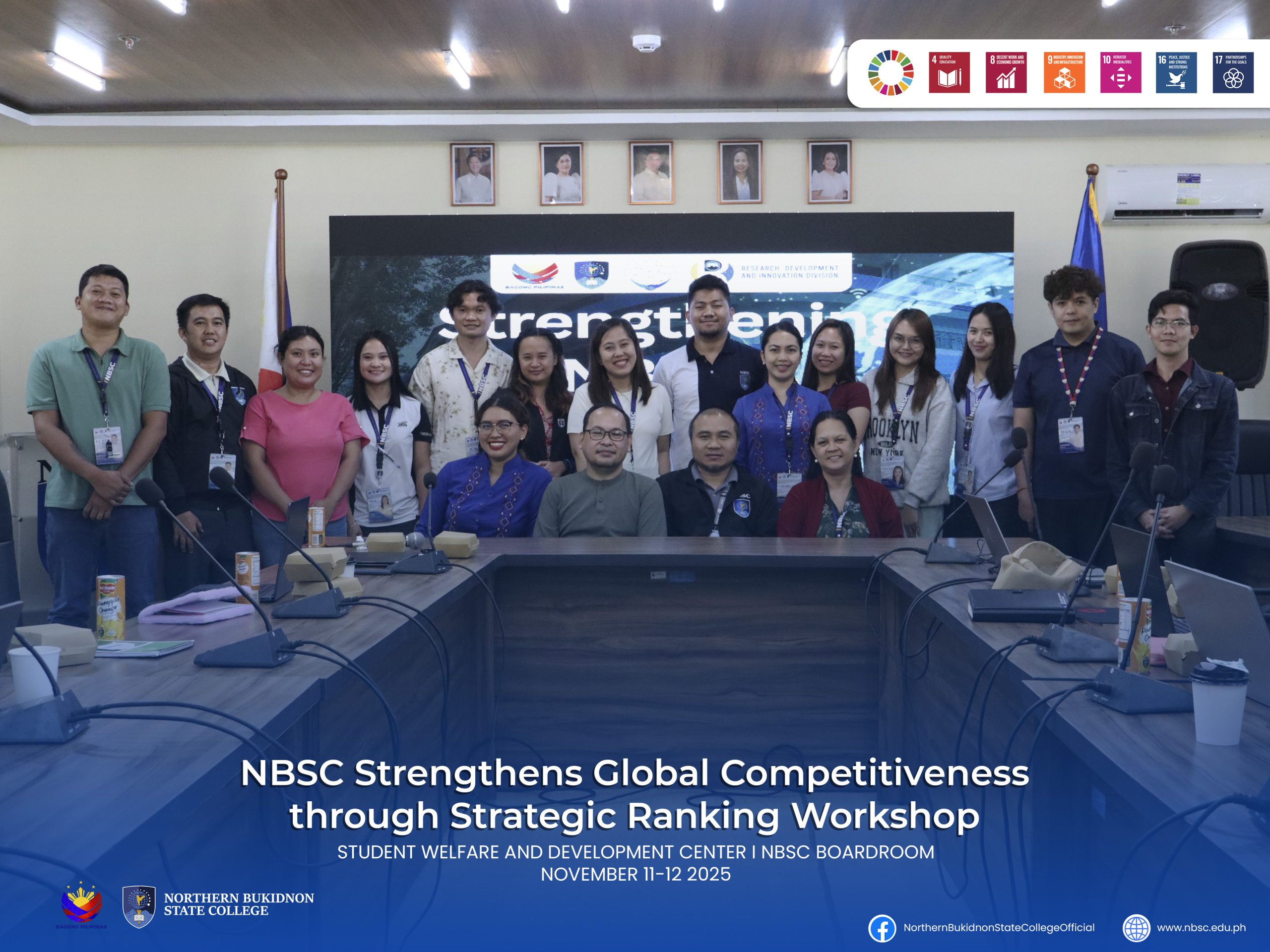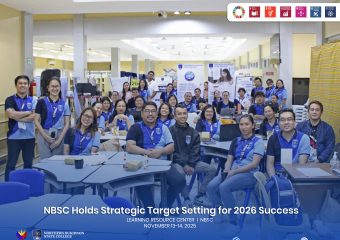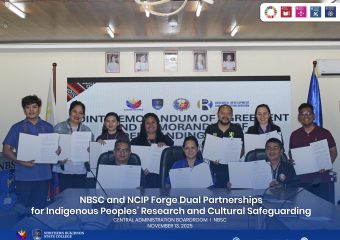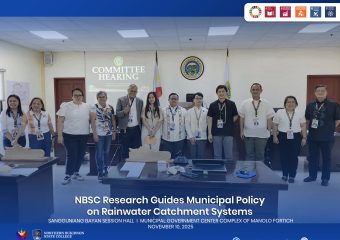NBSC STRENGTHENS GLOBAL COMPETITIVENESS THROUGH STRATEGIC RANKING WORKSHOP
Northern Bukidnon State College (NBSC) hosted a two-day capacity-building activity on November 11–12, 2025, designed to enhance the college’s understanding of global ranking systems and strengthen its international reputation. The event, held at the Student Welfare and Development Center (SWDC) and the NBSC Boardroom, gathered key faculty, staff, and experts to identify strategies for elevating NBSC’s position among higher education institutions worldwide.
The first day of the event began with welcoming remarks from Dr. Mary Koren Witting-Acuesa, Director of the Research, Development, and Innovation Division (RDID), who highlighted the importance of global recognition in advancing the college’s mission. Dr. Jovelyn G. Delosa, Vice President for Academic Affairs, followed with an inspirational message, emphasizing the role of innovation and academic excellence in driving the institution’s global visibility. Ms. Maria Michaela Q. Jamora, MS, the Designate Head of International Affairs and External Linkages Offices (IAELO), introduced the resource speaker, Dr. Rey Y. Capangpangan from Mindanao State University-Naawan (MSU-Naawan).
Dr. Capangpangan led the first session on the Overview for Global Rankings and Their Strategic Relevance to Higher Education Institutions. He provided an in-depth look at how global rankings assess universities, covering key criteria such as research output, teaching quality, and international partnerships. The session gave participants valuable insights into the ways these rankings influence an institution’s global stature and strategic development. Dr. Capangpangan’s second session delved into the World University Rankings for Innovation (WURI), focusing on the specific indicators that measure a university’s innovation capabilities. The session was followed by Workshop 1, where participants worked together to map NBSC’s current practices to WURI indicators, exploring areas where the college could improve its innovation-driven efforts.
The second day of the event continued with Dr. Capangpangan leading sessions on some of the most prominent global ranking systems. Session 3 covered the Times Higher Education (THE) World University Rankings, where Dr. Capangpangan explained the various factors that influence the rankings, such as teaching, research, and international outlook. Session 4 followed with an exploration of the Quacquarelli Symonds (QS) World University Rankings, with a particular focus on the key performance metrics used by QS, including academic and employer reputation, faculty-to-student ratio, and research impact.
In the final session, Dr. Capangpangan introduced the Universitas Indonesia (UI) GreenMetric, a ranking that evaluates universities on their sustainability and environmental practices. The session highlighted the growing importance of sustainability in global rankings and provided participants with a framework for incorporating green initiatives into their institutional practices.
Participants then collaborated in a second workshop to align NBSC’s institutional efforts with THE, QS, and UI GreenMetric indicators. This exercise aimed to establish actionable strategies to enhance the college’s global competitiveness and sustainability initiatives.
By the end of the two-day activity, NBSC not only gained a deeper understanding of international ranking frameworks but also formulated concrete steps to advance its institutional excellence and strengthen its global visibility.





